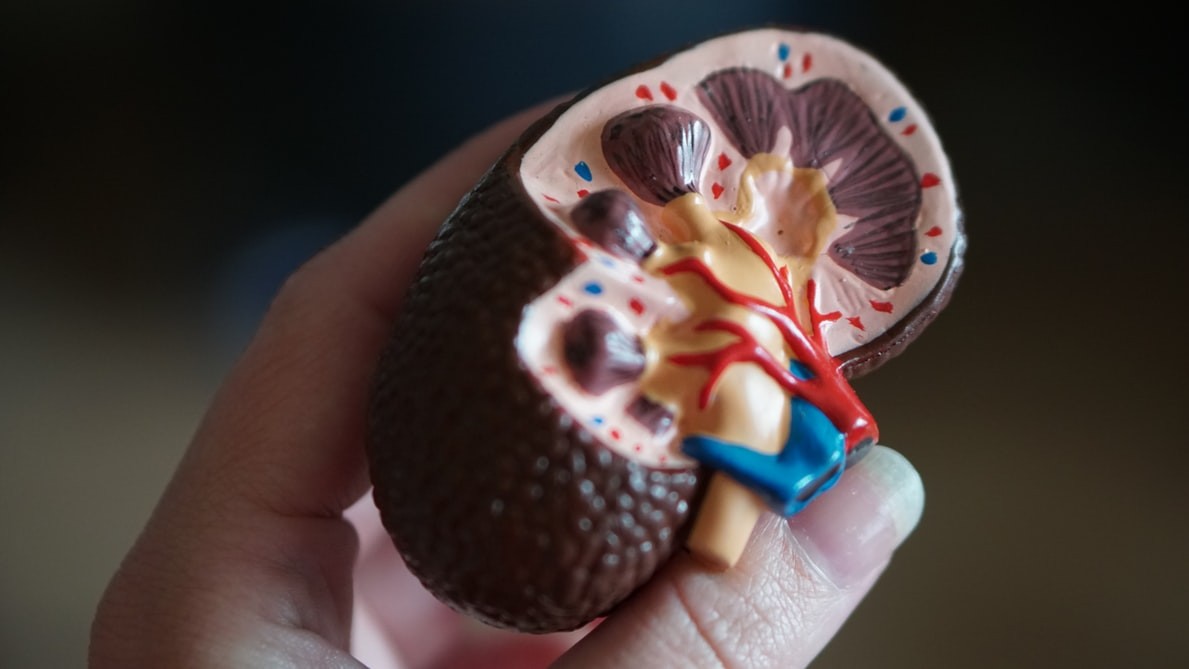
UC research: Kidney injury risks higher for hospitalized pregnant women
Awareness and detection could lead to interventions reducing the disease burden on those women
New research from the University of Cincinnati shows an increased rate of sudden episodes of kidney failure or damage in women who are hospitalized during pregnancy.
The increased rates of acute kidney injury (or AKI) in hospitalized pregnant women were even more likely to occur among those with diabetes and showed a higher likelihood of maternal mortality with pregnancy-related AKI. The study, published in the American Journal of Nephrology, finds those higher rates could be due to increased awareness of the disease, and that awareness may produce protocols to reduce the impact of AKI on pregnant women.
Silvi Shah, assistant professor in the Division of Nephrology, Kidney Clinical Advancement, Research and Education Program at UC, says the research found an overall acute kidney injury rate of 0.08% in pregnancy-related hospitalizations. Compared to white women, black women had a 52% higher likelihood and Native American women had a 45% higher likelihood for AKI during pregnancy-related hospitalizations, according to the study.
“Kidney injury during pregnancy is associated with significant maternal and fetal morbidity and mortality,” says Shah, lead author of the study. “Since data is so scarce for clinical outcomes with AKI during pregnancy, we examined the rates, racial differences, mortality and health care utilization associated with pregnancy-related AKI hospitalizations.”
The study examined more than 42 million pregnancy-related hospitalizations between Jan. 1, 2006, and Dec. 31, 2015, using data from the Nationwide Inpatient Sample. The rate of AKI during pregnancy-related hospitalization was 0.08% and the rate increased from 0.04% in 2006 to 0.12% in 2015. Factors associated with a higher likelihood of AKI during pregnancy included older age, black and Native American race and ethnicity and diabetes. Hospitalizations with pregnancy-related AKI had a 14-fold higher adjusted risk of inpatient mortality and a 16-fold higher adjusted risk of cardiovascular events.

Silvi Shah, MD, sits at her desk in her office in the College of Medicine. Photo credit/Colleen Kelley/UC Creative Services
“AKI, defined as sudden deterioration in kidney function potentially leading to kidney failure, is not uncommon and strikingly increases the risk of morbidity and mortality,” says Charuhas Thakar, division director of nephrology and professor of medicine at UC and senior author of the study. “AKI incidence has increased with the total number of AKI hospitalizations rising from just under one million in 2000 to nearly four million in 2014. Identifying specific clinical settings and co-morbid and other risk factors of AKI may provide opportunities to improve survival and reduce long-term consequences of this devastating condition.”
This research is emblematic of the university’s commitment to urban impact, one of the pillars of UC’s strategic direction, Next Lives Here.
Shah says this study is unique in that it addresses a comprehensive racial group of patients from 2005-16 from a national database to better understand the incidence of AKI during pregnancy and factors associated with it among women of child-bearing age. She says the study further considered patients with all pregnancy-related hospitalizations, thus avoiding the potential shortfalls of registries dependent on voluntary reporting or patient recall.
“Our findings suggest a high burden of AKI during pregnancy in women especially those with history of diabetes and of black and Native American race and ethnicity,” says Shah. “We speculate that increased awareness and detection of AKI during pregnancy have contributed to the increasing rates of AKI during pregnancy-related hospitalizations in recent years in the United States, but further research is needed. I encourage clinicians to routinely check patient kidney panels during inpatient hospitalizations. This study suggests that implementation of specific interventions for the prevention, diagnosis and management of AKI in pregnant women may reduce the burden of AKI during hospitalizations in the United States.”
Assisting her in the research were Annette Christianson and Karthikeyan Meganathan, research associates in the UC Department of Biomedical Informatics; Anthony Leonard, research associate professor in the UC Department of Family and Community Medicine; Daniel Schauer, of the UC Department of Internal Medicine as well as Thakar. Shah is supported by the intramural funds from the UC Division of Nephrology.
Next Lives Here, the University of Cincinnati’s strategic direction, defines our moment and our momentum. More nimble and more robust than a plan, Next Lives Here announces our vision to the world—to lead urban public universities into a new era of innovation, impact, and inclusion.
Related Stories
Machine learning brings new insights to cell’s role in...
April 30, 2025
Researchers led by the University of Cincinnati’s Anna Kruyer and the University of Houston’s Demetrio Labate have published research in the journal Science Advances applying object recognition technology to track changes in brain cell structure and provide new insights into how the brain responds to heroin use, withdrawal and relapse.
Most teens prescribed SSRIs did not have recommended follow-up...
April 30, 2025
The University of Cincinnati and Cincinnati Children's Hospital Medical Center's Martine Lamy commented to Medscape on new research that found fewer than half of the adolescents prescribed a selective serotonin reuptake inhibitor (SSRI) at two large Chicago pediatric primary care clinics had a follow-up visit within the recommended 6 weeks.
Students shine at 2025 CAHS Scholarly Showcase
April 29, 2025
Nearly 200 students and more than 40 alumni judges participated in the 2025 CAHS Scholarly Showcase at the University of Cincinnati, featuring 82 research projects across allied health disciplines.
